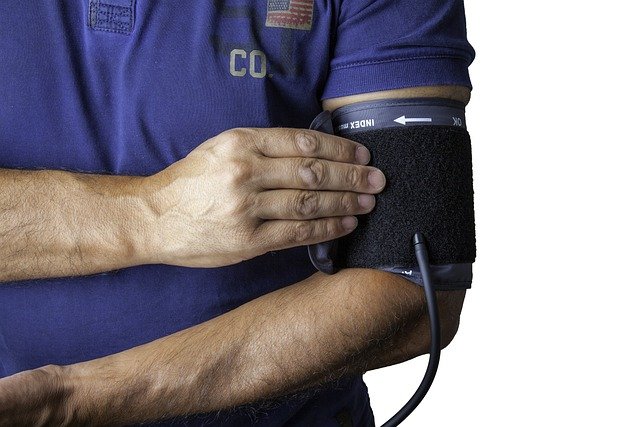The Role of Monitoring Devices in Modern Healthcare
In today's fast-paced world, monitoring devices have become an integral part of modern healthcare. These innovative tools allow individuals to keep track of various health indicators, empowering them to take control of their well-being. From blood pressure monitors to wearable fitness trackers, these devices provide valuable insights into our bodies' functioning, helping both patients and healthcare professionals make informed decisions.

Modern blood pressure monitors often incorporate advanced features such as memory storage, multiple user profiles, and even smartphone connectivity. This allows users to track their blood pressure over time and share data with their healthcare providers easily.
What are the benefits of wrist blood pressure monitors?
Wrist blood pressure monitors have gained popularity due to their compact size and ease of use. These devices wrap around the wrist instead of the upper arm, making them more convenient for travel and discreet measurements. Some key benefits of wrist monitors include:
-
Portability: Their small size makes them ideal for on-the-go use.
-
Comfort: Many users find wrist monitors less cumbersome than traditional arm cuffs.
-
Ease of use: They can be self-applied with one hand, making them suitable for elderly or individuals with limited mobility.
-
Accuracy: While historically less accurate than upper arm monitors, many modern wrist devices now offer comparable precision when used correctly.
However, it’s important to note that proper positioning is crucial for accurate readings with wrist monitors. Users must keep their wrist at heart level during measurement to ensure reliable results.
How can health monitoring devices improve overall well-being?
Health monitoring devices extend far beyond blood pressure measurement. These tools can track various aspects of our physical condition, contributing to improved overall well-being in several ways:
-
Early detection: Regular monitoring can help identify potential health issues before they become serious problems.
-
Motivation: Seeing progress in health metrics can encourage individuals to maintain healthy lifestyles.
-
Personalized care: Data from monitoring devices allows healthcare providers to tailor treatment plans to individual needs.
-
Chronic disease management: For those with ongoing health conditions, these devices offer a way to track symptoms and medication effectiveness.
-
Stress reduction: By providing concrete data, monitoring devices can alleviate anxiety about health status.
What types of medical devices are commonly used for home monitoring?
A wide range of medical devices are now available for home use, enabling individuals to monitor various aspects of their health. Some common types include:
-
Blood glucose monitors: Essential for diabetes management
-
Heart rate monitors: Often integrated into fitness trackers or smartwatches
-
Pulse oximeters: Measure blood oxygen levels
-
ECG monitors: Record electrical activity of the heart
-
Sleep trackers: Analyze sleep patterns and quality
-
Smart scales: Measure weight, body fat percentage, and other metrics
| Device Type | Purpose | Key Features |
|---|---|---|
| Blood Pressure Monitor | Measure blood pressure | Digital display, memory storage |
| Blood Glucose Monitor | Track blood sugar levels | Fast results, small sample size |
| Smartwatch | Multi-purpose health tracking | Heart rate monitoring, activity tracking |
| Pulse Oximeter | Measure blood oxygen saturation | Portable, non-invasive |
| ECG Monitor | Record heart’s electrical activity | Continuous monitoring, data sharing |
Prices, rates, or cost estimates mentioned in this article are based on the latest available information but may change over time. Independent research is advised before making financial decisions.
How do health monitoring devices contribute to preventive care?
Health monitoring devices play a crucial role in preventive care by providing individuals and healthcare professionals with valuable data to identify potential health risks early. By regularly tracking vital signs and other health metrics, these devices can:
-
Detect abnormal patterns: Continuous monitoring can reveal subtle changes that might indicate developing health issues.
-
Encourage proactive behavior: Awareness of health metrics often motivates individuals to make healthier lifestyle choices.
-
Facilitate timely interventions: Early detection of health concerns allows for prompt medical attention, potentially preventing more serious conditions.
-
Support data-driven healthcare: The wealth of data collected by these devices can inform more personalized and effective treatment strategies.
By empowering individuals to take an active role in their health management, monitoring devices contribute significantly to a more proactive and preventive approach to healthcare.
In conclusion, monitoring devices have revolutionized the way we approach personal health management. From blood pressure monitors to sophisticated wearable tech, these tools provide invaluable insights into our bodies’ functioning. As technology continues to advance, we can expect even more innovative and user-friendly devices to emerge, further enhancing our ability to monitor and maintain our health proactively.
This article is for informational purposes only and should not be considered medical advice. Please consult a qualified healthcare professional for personalized guidance and treatment.




